Media
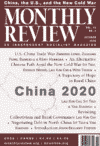
This special issue of Monthly Review, “China 2020,” is the product of a long period of cooperation with critical Chinese Marxist scholars. This has resulted in an extensive series of articles on contemporary Chinese social and economic relations since 2012, to which most of the authors in the present issue have previously contributed. It takes on a special significance due to the growing conflict between the United States and China, making critical Marxist analysis in this area all the more important. | more…

Hilary Rose, a sociologist, and Steven Rose, a neuroscientist, were two of the principal founders of the British Society for Social Responsibility in Science in the late 1960s in London. They speak about their work as scientists and antiwar activists, particularly around the issue of Palestinian liberation. | more…

A new poem by Linda Backiel. | more…
A Socialism for the Twenty-First Century?
Starting in the late 1960s, the development of the productive forces of society entered a new stage: the Information Revolution, an era focused on the application of information theories such as cybernetics combined with advances in computer technology and digital communication networks, culminating in the Internet. Under capitalist conditions, this has already resulted in a knowledge economy, but the social, auto-regulatory possibilities it opens up are bound to be incompatible with the private appropriation characteristic of capitalism. | more…
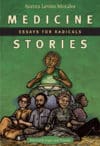
Healing through the stories we rescue and the history we make is what Aurora Levins Morales’s Medicine Stories: Essays for Radicals is about. The author, a historian curandera, compiled a series of twenty-eight essays in this second edition, published twenty years after the first. Levins Morales theorizes movements for social justice and how to overcome challenges faced by activists and all those fighting and resisting oppression. She does this through accounts of her studies, personal experiences, and social conditions, providing a view of the world that allows collective healing and encourages it in others through a comprehensive understanding of history. | more…
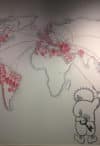
The Ass and the Red Heifer
The relation between Zionism and Judaism (the Jewish religion) is paradoxical and complex. In its early days, Zionism was apparently a thoroughly secular political movement. In reality, while its ego was secular, its id has always been religious. And in recent times, the latter has emerged from its hidden recess and is parading in full view. | more…
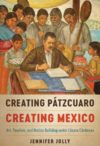
As part of a deconstruction of national identity, Jennifer Jolly, in her Creating Pátzcuaro, Creating Mexico: Art, Tourism, and Nation Building under Lázaro Cárdenas, analyzes the tourist town of Pátzcuaro in the west-central Mexican state of Michoacán as a microcosm of cultural power in which tourism, art, history, and ethnicity were woven together under the presidency of Lázaro Cárdenas del Río (1934–40). | more…
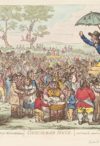
A Forgotten Chapter in the Working-Class Fight for Democratic Rights
November 5, 2019, is the 225th anniversary of the acquittal of Thomas Hardy on charges of High Treason. Hardy is nearly forgotten today, but for decades workers and democrats in England celebrated November 5 as the anniversary of a major victory, a triumph over a powerful state that had deployed immense resources to crush working-class organizations and suppress popular demands for democratic rights. | more…

In Bill Fletcher Jr.’s first novel, The Man Who Fell from the Sky, the sleepy Cape Cod town of Osterville has blood on its hands. In this murder mystery, Fletcher digs through layers of racism in Southern Massachusetts to uncover more than the killer’s identity. The novel compellingly exposes the racism of society, turning its victims against each other. | more…
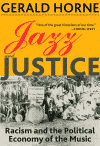
The music we call “jazz” arose in late nineteenth century North America—most likely in New Orleans—based on the musical traditions of Africans, newly freed from slavery. Grounded in the music known as the “blues,” which expressed the pain, sufferings, and hopes of Black folk then pulverized by Jim Crow, this new music entered the world via the instruments that had been abandoned by departing military bands after the Civil War. Gerald Horne’s Jazz and Justice: Racism and the Political Economy of the Music examines the economic, social, and political forces that shaped this music into a phenomenal U.S.—and Black American—contribution to global arts and culture. | more…
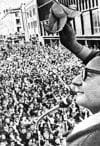
On February 11, 2019, Ariel Dorfman published an article in the Nation, in which he imagined the advice of the late Chilean president Salvador Allende would supposedly offer Nicolás Maduro in order to confront successfully the challenges of the current Venezuelan conjuncture. This is Allende’s fictional reply to Dorfman. | more…
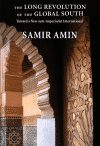
In this second volume of his memoirs, Samir Amin takes us on a journey to a dizzying array of countries, primarily in the Arab World, Africa, Asia, and Latin America, recounting in detail the stages of his ongoing dialogue over several decades with popular movements struggling for a better future. Along the way, we meet government leaders, activists in popular movements, and working people, both rural and urban. As in his many works over the years, The Long Revolution of the Global South combines Amin’s astute theoretical analyses of the challenges confronting the world’s oppressed peoples with militant action. | more…










